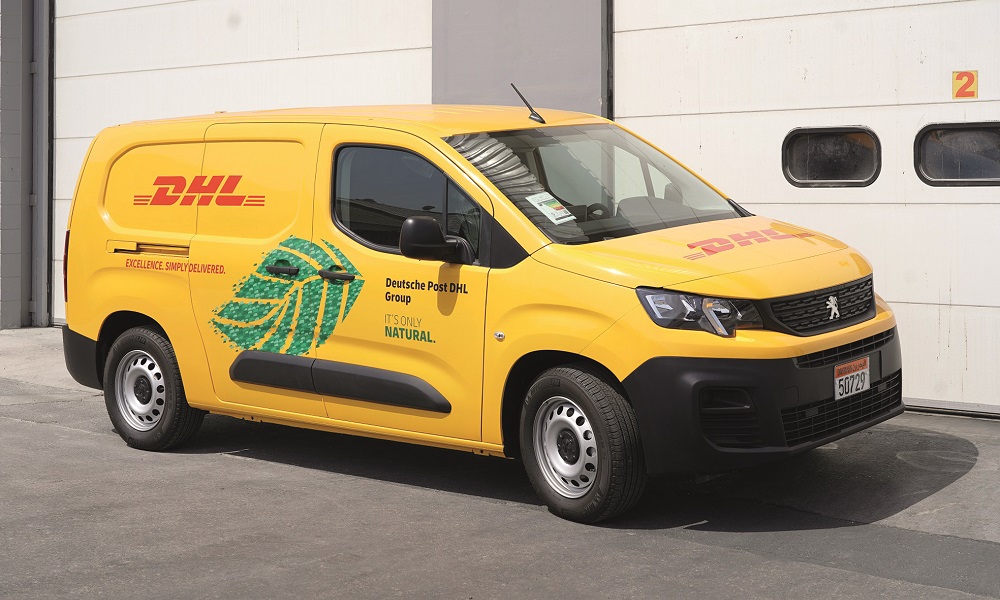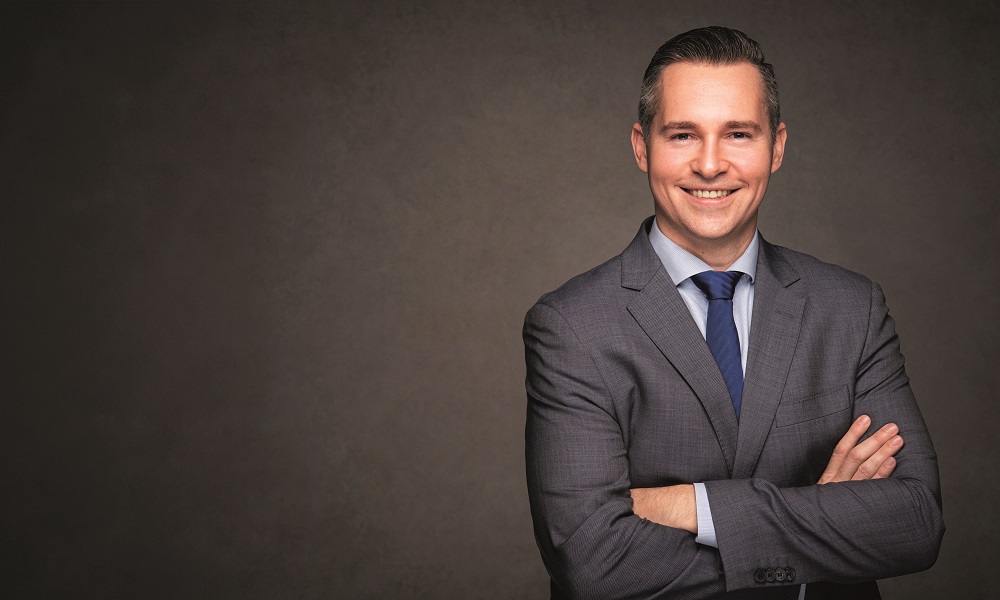2023 has been a busy year of major announcements for electric commercial vehicles in the GCC, not least the deal struck between Peugeot Middle East and DHL Middle East in March, which has welcomed the first ever fully electric fleet of Light Commercial Vehicles (LCVs) to the region.
The Stellantis Group-owned French brand is currently the only automotive manufacturer in the Middle East to offer fully electric LCV Peugeot e-Partner and e-Expert vans. Peugeot says it wants to lead the market in electrification and carbon net zero automotive products while exceeding the expectations of its customers. With the DHL deal now public, Yury Duzhnikov, Head of French Brands at Stellantis, talks to T&FME’s Stephen White about the partnership’s origins and its importance to the wider delivery market.
Yury, I am sure a deal like this doesn’t happen overnight?
Indeed, DHL has been a valued long-term partner for Peugeot for many years, with our discussions naturally shifting towards electric vehicles (EVs) over the course of our partnership. When Peugeot confirmed the launch of a range of electric light commercial vehicles (ELCVs) back in 2021, DHL and Peugeot embarked on a collaboration to bring these vehicles to the Middle East.
Both Peugeot and DHL are committed to achieving net-zero emissions – this partnership is a testament to that shared goal. While our collaboration began a while ago, external factors such as COVID-19 and the need for testing delayed our long-awaited partnership. Only once our R&D had confirmed the vehicles’ performance, especially after having been tested in hot weather conditions, were we able to proceed and supply DHL with the fully electric LCV fleet. Today, we are proud to say that we’re the first and only brand to offer electric light commercial vehicles in the region through our partnership with DHL.
This is all so exciting, but testing over the summer months must have been nerve-wrecking?
The testing phase was crucial. We had to ensure that the vehicles’ range wouldn’t be compromised and that the batteries would not overheat, considering the region’s unique climate. Additionally, thorough testing was carried out to ensure the air conditioning units functions properly. Once we had confirmed that all these aspects were up to standard, we were confident in bringing the vehicles to market.
You mention training for drivers. My experience of electric vehicles is that they seem easier to drive?
Our training isn’t only focused on drivers’ ability to adapt to the vehicles’ measurements etc, but also on familiarizing them with the recharging process. Also, in order to stand out from internal combustion vehicles, we have added several new features such as cruise control and Apple CarPlay to give that ‘electric experience’. This is so that drivers are comfortable in the LCVs and choose to switch to electric vehicles over time. There is expectation in this market that decision-making is be top-down in terms of purchasing but, quite often, it is the drivers themselves who are actually upselling. Their feedback is therefore extremely important. Our aim is to ensure that drivers are not only comfortable with EVs but also enthusiastic about making the switch so that they become advocates.
Coming back to the DHL partnership itself, what do you feel will make this work?
People and common goals. Peugeot’s relationship with DHL is testament to our commitment to Stellantis Group’s Dare Forward 2030 strategy. It is a global partnership, not just a regional one. This alignment has already yielded several successful projects, as seen with our sister brand, Citroen, in Singapore. Our continuous collaboration with DHL involves regular reviews of deployment progress, ensuring that our partnership goes beyond just integrating the vehicles into their fleet. Challenges are addressed through joint solutions, fostering a dynamic that is essential for pioneering initiatives like ours.
Does being a pioneer or guinea pig bring added pressure?
Being a pioneer means additional pressure to succeed and ensure flawless execution. Leading the charge always takes extra time and effort to provide the very best, no matter what sector you operate in. However, having the right products significantly eases the process. We took the time to thoroughly develop our vehicles to make things as simple and effective as possible for our customers. Extensive hot weather testing was pivotal to this, allowing us to confidently stand by our offerings.
We’re talking about driver training, getting used to charging. There’s always that concern about range anxiety.
Being a pioneer means additional pressure to succeed and ensure flawless execution. Leading the charge always takes extra time and effort to provide the very best, no matter what sector you operate in. However, having the right products significantly eases the process. We took the time to thoroughly develop our vehicles to make things as simple and effective as possible for our customers. Extensive hot weather testing was pivotal to this, allowing us to confidently stand by our offerings.
Now, that would be great…
Yes, this would completely remove the range anxiety that a lot of people have when thinking about recharging their vehicle.

You’ve done the trialling and you’ve made this announcement, so what happens from this point?
The Peugeot ELCVs are already on ground, and we have more in production. The next step would be to regulate the size requirements to be functioning, in terms of volume, and urgent parts replacement. We expect the challenges will revolve around infrastructure. We partnered with the likes of Siemens to support the end-customers with the transition.
Charging infrastructure is the big limitation, isn’t it? Dubai, for instance, has got quite ambitious targets for EVs, but they need to get the charging infrastructure in place.
Exactly. This is why Peugeot wants to focus on the B2B segment because we know that vehicle charging can easily be done at the office or at a depot. We can install charging stations for a relatively low cost. For many B2B cases, if you install a simple AC charger at a depot or in the parking lot costing AED 3,000, you support and encourage adoption. This is why we’re working with Siemens to develop smart EV charging infrastructure technologies for the Middle East. The partnership includes creating packaged solutions for customers, and the electrification of Last Mile delivery services in Middle East markets. Our belief is that if people can charge their vehicle at the office or at depots, the infrastructure will come to market quickly.
Maybe the barrier to entry isn’t quite as high as some people think it might be?
Being part of the Stellantis Group allows us to leverage synergies and cooperate across brands, so that we can meet customer needs and shape the future of mobility. As such, we capitalise as much as we can on the way that other parts of the world are going through energy transition. Europe is already at 100% adoption and in North America, that figure is around 50%. Peugeot’s experience in other parts of the world gives us valuable insights that we can learn from and apply to markets across the region.
We don’t just look at the customer, but dealers as well; we educate them to understand the potential of these vehicles. We’re focusing on the customer experience journey, which is where they transition from the regular retail model to a marketplace model. Customers nowadays care about services and solutions, financing, insurance, and how to sell, so the cars themselves are becoming more connected. We recognise the importance of the overall experience and so offer comprehensive solutions.
You’ve been working on this for three years and now you’re finding yourself caught up in a wave of COP-28 interest. How does that feel?
Being at the forefront of greener transportation supports Stellantis Group’s commitment to carbon emissions reduction. Our efforts also align with urgent climate change needs. Contributing through partnerships, actions, and collaborations gives us a sense of purpose as we work towards a more sustainable future.
I suspect people will want to learn a lot from what you’re doing. Are you sensing a movement towards greener mobility in the market?
Definitely. We’ve taken the first step by bringing the electric light commercial vehicles to this market through our partnership with DHL.
Companies have started to recognise the need for the change. The perceptions have moved from being sceptical about technology to: “How can we implement?”. Previously, it was: “We don’t even want to discuss,” whereas now it’s: “Okay, how?” That is where we come in with partners like Siemens to bring a 360 solution that explains the benefits of transitioning to EVs over long term. For example, operational maintenance of electric light commercial vehicles is just a fraction of the internal combustion vehicle. Imagine being in the shoes of companies that are doing 200,000-300,000km, who find out that maintenance costs, which grow every year, are nothing when it comes to electric vehicles because the components are clean. Add to that the rising cost of fuel, even in places like the UAE, and it becomes even more financially viable.
Do dealers worry about losing revenue as EVs require less frequent maintenance?
Not at all. The focus is shifting toward diversifying services and solutions. So, it’s not just about vehicle transactions anymore; it’s about identifying additional revenue streams that can be created by integrating electric vehicles into the ecosystem.
How do you think we can ensure that we see faster growth in electric vehicles, particularly in the professional fleet market?
Affordability is key, as is the long-term viability in terms of financing. Of course, you also need the availability of clean energy. It’s very difficult to employ electric vehicles in countries where their grids are not set up properly. Fortunately, we don’t have this problem here. Another key element is, of course, infrastructure. This is where, while different regions are progressing at different speeds, we need to recognise that the momentum and progress exhibited by markets such as the Middle East go at their own pace. In the Western world, we have rapid development, but that comes also with risks such as raw material scarcity, inflation challenges, that could delay implementation, which you normally don’t get in the Middle East.
Globally, Stellantis Group is looking at the concept of energy transition. So, whilst electric vehicles are the first step, we’re not stopping there. We’re also looking at clean fuel and of course, hydrogen fuel cells. So, there’s a lot of waiting. We can implement this – the technology’s adopting as we speak. Also, while we’re focused on electric vehicles, there’s also the chance that we’ll go back to internal combustion engines later down the line because we’ve developed hi-tech engines and fuel that have zero emissions.
One particular solution that seems to have some promise is the hydrogen conversion of the internal combustion engine. For some applications like long haul, it seems like a really good option.
This is where a lot of our investments are going. Hydrogen fuel cells offer great promise and we’re actively integrating them into our commercial vehicle lineup. Despite infrastructural challenges, global initiatives are underway to pioneer this technology, which we’re evaluating the feasibility of to bring to our markets.
While it’s important to talk about EV, internal combustion engine and hydrogen fuel cell initiatives in play, connectivity is also an important part of our strategy. You mentioned dealers earlier – ours are already accepting the transition.
Data is another important factor when it comes to products and services as we can use data to support B2B customers and give them better routes. Connectivity is something that we’re focused on and looking to bing more of in the coming years.



